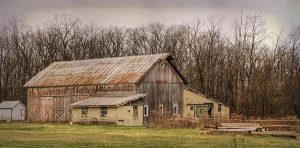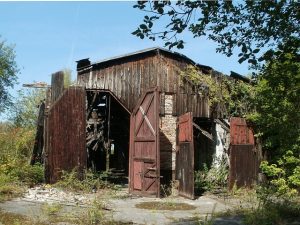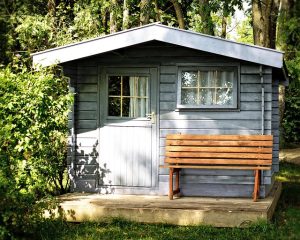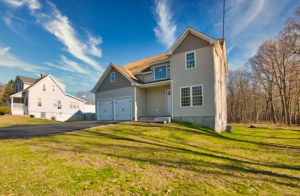Designing Durable Farm Sheds for Albury’s Climate and Terrain
In Albury, optimizing farm shed designs is essential to cope with its temperate climate marked by hot summers, mild autumns, cool winters, and wet springs. The construction of durable farm sheds involves robust materials like steel and galvaniz…….

In Albury, optimizing farm shed designs is essential to cope with its temperate climate marked by hot summers, mild autumns, cool winters, and wet springs. The construction of durable farm sheds involves robust materials like steel and galvanized steel for resilience against the region's strong winds, high temperatures, and variable rainfall. Effective waterproofing and drainage are paired with ventilation strategies to manage extreme heat and frost risks, ensuring these structures support agricultural productivity while enduring Albury's climatic challenges. The use of sustainable materials like recycled plastic or composite panels is on the rise, reflecting a shift towards environmentally friendly practices in farm shed construction. These sheds are tailored for optimal space utilization, featuring intelligent layouts that streamline operations and incorporate natural light and ventilation systems to reduce energy consumption and promote a healthier working environment. Advanced insulation materials help maintain consistent temperatures within the sheds, protecting livestock and stored goods, while sophisticated roofing systems with high thermal mass contribute to energy efficiency and reduced carbon footprint. Strategic design elements like internal trusses and bracing further enhance structural integrity, making Albury's farm sheds a critical component of resilient and productive agricultural enterprises in the region.
Exploring the robust hay shed designs tailored for Albury’s diverse weather patterns, this article delves into the essential considerations for constructing durable farm sheds. From material selection that withstands the elements to optimizing layouts for space efficiency, we navigate through advanced insulation methods and the importance of robust foundations. Additionally, the critical role of ventilation systems for maintaining optimal conditions within these structures is highlighted. Understanding Albury’s unique climatic conditions is paramount in designing sheds that not only protect hay but also endure the test of time.
- Understanding Albury's Climatic Conditions and Their Impact on Farm Shed Design
- Material Selection for Durability: The Best Options for Albury Farm Sheds
- Optimizing Space with Efficient Layouts in Albury Farm Sheds
- Advanced Insulation Techniques for Albury's Temperate Climate
- Robust Foundations and Structural Integrity of Albury Farm Sheds
- The Role of Ventilation Systems in Maintaining Optimal Conditions Within Albury Farm Sheds
Understanding Albury's Climatic Conditions and Their Impact on Farm Shed Design
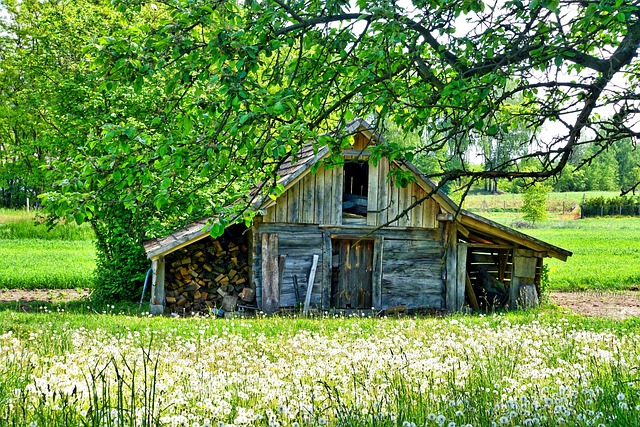
In Albury, a region situated in the south-eastern part of New South Wales, Australia, the climatic conditions are characterized by a temperate climate with distinct seasons. The area experiences hot summers, mild to warm autumns, cool winters, and springs that are generally wetter. To accommodate these conditions, farm sheds in Albury must be designed with durable materials that can withstand high temperatures during the summer months while providing adequate insulation for the colder periods. These structures are not merely storage spaces but vital assets for agricultural activities, requiring year-round protection against the elements.
The impact of Albury’s weather on farm shed design is significant. For instance, the prevalence of strong winds necessitates robust construction to prevent structural damage and maintain the integrity of the contents within. Additionally, the region’s variable rainfall patterns mean that waterproofing and drainage systems are crucial in farm shed design. Farmers in Albury also face the challenge of managing frost, which can affect both the soil and the materials used in shed construction. Consequently, designs often incorporate ventilation strategies to mitigate the effects of extreme heat and ensure condensation is managed effectively during cold spells. By understanding and adapting to these climatic conditions, farm shed designs in Albury not only enhance agricultural productivity but also contribute to the longevity and resilience of rural infrastructure.
Material Selection for Durability: The Best Options for Albury Farm Sheds
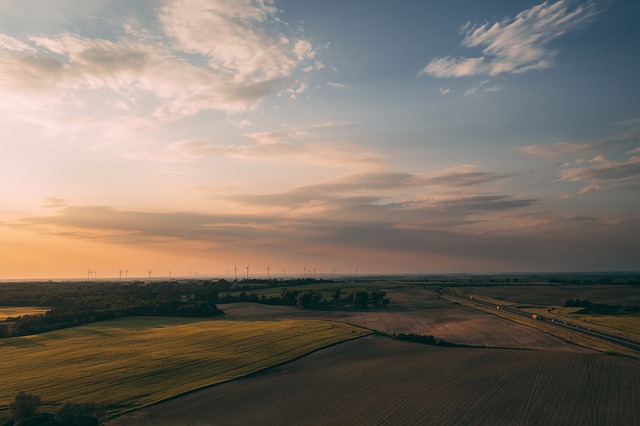
When constructing farm sheds in Albury, a region known for its varied weather conditions, material selection is paramount for ensuring durability and longevity. The harsh sun, erratic rainfall, and strong winds are factors that necessitate materials capable of withstanding these elements. Steel remains the preeminent choice for farm shed construction due to its robustness and low maintenance requirements. Galvanized steel, coated with a protective zinc layer, further enhances resistance to rust and corrosion, making it an ideal material for the Albury climate. Additionally, colorsteel cladding options offer superior protection against UV radiation, ensuring the shed’s integrity over time.
Apart from steel, materials like treated timber can also be suitable, especially when combined with durable coatings to shield against the weather. Timber farm sheds can provide a traditional aesthetic that blends well with rural settings, yet they must be regularly maintained to prevent decay and pest infestation. For those seeking eco-friendly options, materials such as recycled plastic or composite panels are gaining popularity. These innovative materials offer longevity, resistance to mold and pests, and minimal environmental impact, making them a sustainable choice for Albury farm sheds.
Optimizing Space with Efficient Layouts in Albury Farm Sheds
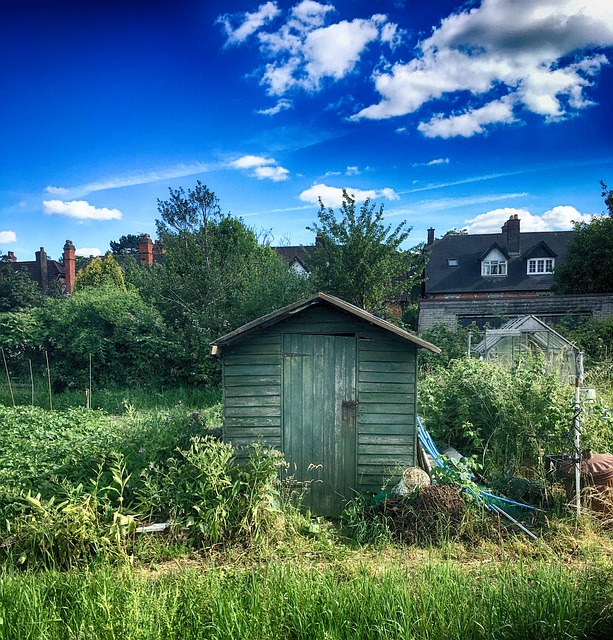
In Albury’s diverse agricultural sector, optimizing space within farm sheds is paramount for efficient operation and productivity. The unique climate conditions of Albury necessitate farm shed designs that not only maximize storage and sheltered working areas but also accommodate the variable weather patterns of the region. Local farm shed providers have honed their craft to create structures that cater to the specific needs of the area’s farmers, ensuring that every square meter is utilized to its full potential. These sheds are engineered with smart layouts that facilitate the seamless flow of activities from storage to processing, reducing the time spent moving between tasks and minimizing exposure to harsh elements.
Furthermore, the integration of natural light and ventilation systems in these farm sheds enhances the working environment, making it a more pleasant space for agricultural activities. The strategic placement of roller doors, windows, and skylights allows for optimal use of sunlight during daylight hours, which not only cuts down on energy costs but also creates a brighter, more healthful workspace that can contribute to higher productivity levels. Additionally, the use of durable, weather-resistant materials ensures that these farm sheds stand up to Albury’s unpredictable weather, safeguarding valuable equipment and produce year-round. The combination of efficient layouts and robust construction makes farm sheds in Albury indispensable assets for modern agriculture.
Advanced Insulation Techniques for Albury's Temperate Climate
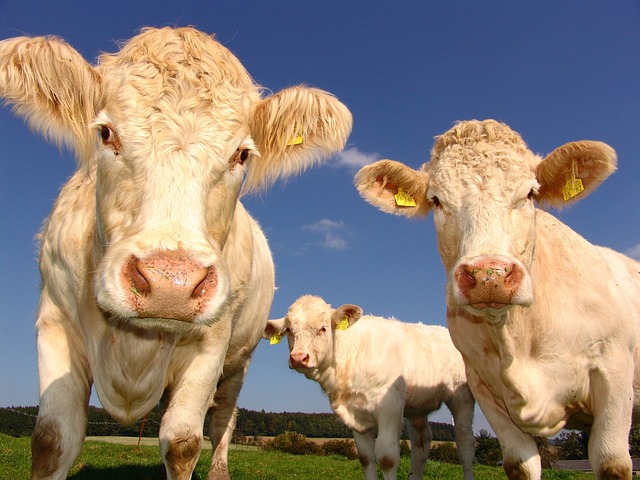
In the temperate climate of Albury, protecting agricultural produce and livestock from extreme weather conditions is paramount. Advanced insulation techniques in farm sheds are pivotal for maintaining optimal temperatures year-round. These techniques not only ensure comfort for livestock but also preserve the quality of stored goods. High-quality insulation materials, such as polyurethane foam or reflective foil, are incorporated into the design of farm sheds to minimize heat transfer. This results in cooler interiors during hot Albury summers and warmer spaces during the colder months. Additionally, the inclusion of well-designed roofing systems with high thermal mass can significantly reduce energy costs and carbon footprint associated with climate control. The orientation of the shed and strategic placement of windows or vents further enhance the insulation properties, allowing for natural ventilation and maximizing energy efficiency. By investing in farm sheds constructed with these advanced insulation techniques, farmers in Albury can safeguard their investments against the unpredictable weather patterns characteristic of the region, leading to improved productivity and sustainability.
Robust Foundations and Structural Integrity of Albury Farm Sheds
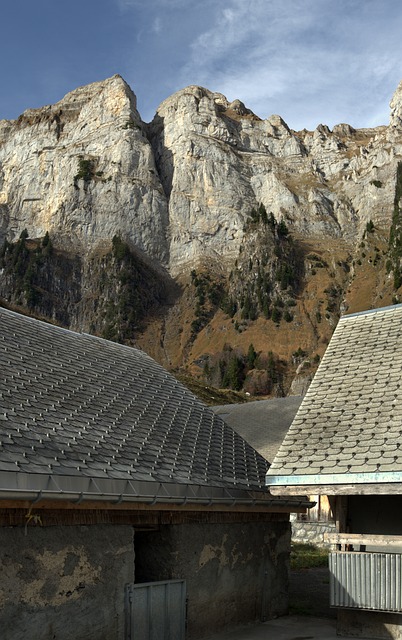
In the diverse climate of Albury, farm sheds are designed with robust foundations to withstand the region’s variable weather conditions. These structures are anchored deep into the ground to provide a stable base capable of enduring strong winds and heavy rainfall typical of the area. The foundational design often incorporates reinforced concrete footings and helix piers, ensuring the farm sheds remain steadfast even during extreme weather events. This stability is not just critical for the longevity of the shed but also for the safety and security of the equipment and produce housed within.
Structural integrity is a paramount consideration in the construction of Albury farm sheds. Utilizing high-grade materials and advanced engineering techniques, these farm structures are built to resist the stresses imposed by environmental factors. The frames are typically made from strong, durable steel, designed to maintain its form under pressure. The roofing systems are engineered to be both waterproof and thermally efficient, ensuring that the contents are protected from weather extremes. Additionally, strategic placement of trusses and bracing within the shed’s framework enhances its overall resilience, making it an enduring solution for agricultural needs in Albury’s varied climatic conditions.
The Role of Ventilation Systems in Maintaining Optimal Conditions Within Albury Farm Sheds
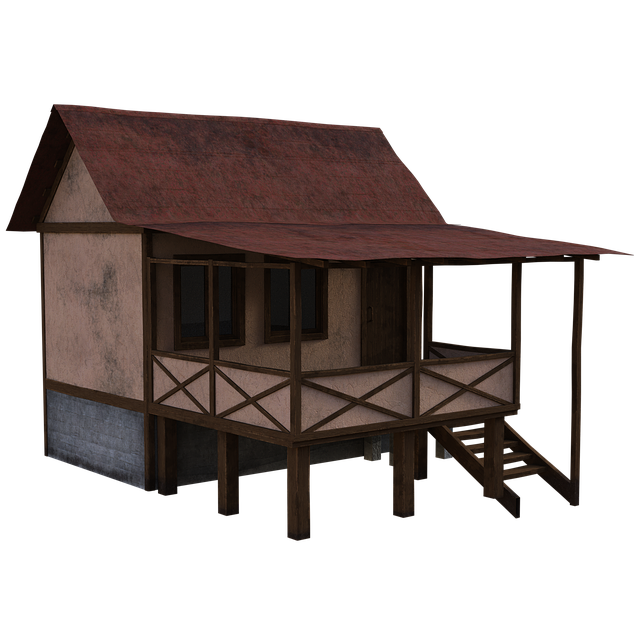
In the temperate climate of Albury, effective farm shed design is paramount for maintaining optimal conditions for crops and livestock. A critical aspect of this design is the integration of robust ventilation systems within farm sheds. These systems play a pivotal role in regulating temperature and humidity levels, ensuring that animals remain comfortable and productive while safeguarding the integrity of stored produce or machinery. The ventilation mechanisms typically consist of strategically placed vents, which can be adjusted manually or automatically in response to environmental cues. This adaptability allows for superior airflow, effectively controlling the buildup of heat and moisture during the region’s sweltering summers and cold winters. Moreover, by facilitating a steady exchange of indoor and outdoor air, these systems help in maintaining excellent air quality, which is crucial for the health and well-being of farm animals and for preventing the proliferation of mold and other undesirable organisms that thrive in stagnant conditions. The design of these ventilation systems must be tailored to the specific needs of each farm shed, considering factors such as size, purpose, and exposure to prevailing winds. This bespoke approach ensures that each farm shed in Albury can achieve an environment where both agricultural products and animals can thrive year-round. Advanced materials and engineering techniques contribute to the longevity and efficiency of these ventilation systems, making them a sound investment for Albury’s farming community.
In conclusion, designing farm sheds tailored for Albury’s unique climatic conditions is paramount for safeguarding agricultural produce and equipment. This article has delved into the critical aspects of farm shed design, emphasizing material selection for resilience, optimized space utilization, advanced insulation, robust foundations, and effective ventilation systems. These factors collectively ensure that farm sheds in Albury not only stand the test of time but also provide an ideal environment for a variety of farming activities year-round. By integrating these design considerations, Albury farmers can enhance productivity and sustainability, making farm sheds a wise investment for the region’s agricultural sector.
